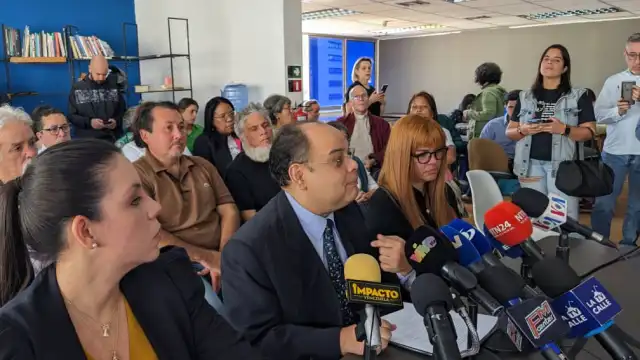The ‘Law for the Control, Regularization, Performance and Financing of Non-Governmental and Related Organizations’, if approved, would require NGOs to declare their assets, and their ‘relationship with donations received, with full identification of the donors, indicating whether they are nationals or foreigners.’
It also states that NGOs would be banned from operating if found ‘carrying out political activities, promoting or allowing actions that threaten national stability and the institutions of the republic.’
The bill was introduced by Diosdado Cabello, second in command to President Maduro, who, it was reported on the National Assembly’s website as saying, wholly without foundation, that the bill ‘represented a debt owed to the Venezuelan people because the ONGs had been used to destabilise the country.’
Diosdado Cabello has form. In 2015 UN Special Rapporteurs denounced ‘televised reprisals’ he carried out against civil society representatives through his radio show ‘Con el Mazo Dando’’ on the main State network.
During his visit, the High Commissioner met with 125 civil society representatives and victims of violations.
‘Coinciding as it does with Türk’s visit, this bill looks like a clear reprisal against human rights defenders, aimed at restricting and intimidating defenders, including in their engagement with the UN’, said ISHR’s Eleanor Openshaw.
The National Assembly President Jorge Rodríguez has indicated that he will move quickly for the bill to have its second reading from which it would pass into law.
As pictured above, at a press conference held on Friday, NGO representatives provided a detailed analysis of the intent and content of the bill, saying that this bill, if it became law, would not stop them from fighting for rights in the country.
The Chair of the UN’s fact-finding mission on Venezuela, Marta Valiñas, said in a statement issued yesterday: “If passed, this law could represent a point of no return in the closure of the civic and democratic space in Venezuela.” The bill has been swiftly denounced by international organisations. As he left the country, the High Commissioner reiterated the importance of enabling the work of civil society, and called for a ‘broad consultative process’ in regard to the proposed law, but there are doubt that any such consultation – if held – would be meaningful.
‘Time is very short. States must speak up for human rights defenders in Venezuela and urgently speak out against any initiative that restricts and obstructs their ability to work,’ said Openshaw.
Download as PDF




